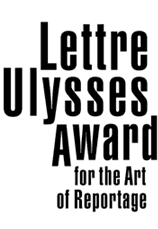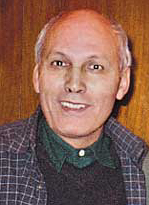
Abdellah Hammoudi, Morocco
 Anthropologist, Lecturer, Writer, * 1945
Anthropologist, Lecturer, Writer, * 1945
Une saison à la Mecque. Récit de pèlerinage
“I realised that the hajj is a journey which occurs on many different levels: geographical, imaginary, collective, personal, practical, and initiatory … The travelogue is an appropriate form for this immense ritual which takes place at different stages, and which invokes an origin, a community’s foundation story. It is the story of an approach towards the truth of existence, because there is no existence without origin, or without a past, a present and a future, and at the end of the journey there is success or failure.”
After his studies Abdellah Hammoudi worked at the Agronomic Institute of the Mohammed V University in Rabat from 1972-1989. He received his doctorate in anthropology from the Sorbonne in 1977.
His homeland Morocco is also a research subject for Hammoudi; he has written about themes such as agricultural policy (La question agraire au Maroc, Rabat 1978, with N. Bouderbala and P. Mascon) and the relationship between tribal society and religion (L'Azzaden: procès de production et structure sociale dans le Haut Atlas, Rabat 1984). His research has also formed the basis for television productions, on which he has worked. 1988 saw the publication of La Victime et Ses Masques (Seuil), in which Hammoudi examined the rituals of Sunni Muslims in Morocco.
In 1990 he was named the first Faisal Visiting Professor for Anthropology at Princeton University. From 1994-2004 he was the first director of Princeton’s Institute for the Transregional Study of the Contemporary Middle East, North Africa, and Central Asia. The Institute was founded with the support of Prince Moulay Hicham Benabdallah of Morocco.
In Master and Disciple: The Cultural Foundation of Moroccan Authoritarianism (1997, University of Chicago Press) he examined the authoritarian structures in the Arabic world, in particular Morocco. The book was first published in French in 2001 (Maitre et Disciple: Essai sur les Fondements Culturels de L'autoritarisme dans les Societies Arabes, Maisonneuve & Larose). His research has led him to reject the theory of an “anthropological foundation“ of Islam (Lévi-Strauss), as well as the “ethno-psychological approach”. He comes to the conclusion that the authoritarian power structures are a transferral of the student-teacher relationship, that can be found in private and public spheres, onto the political level.
In 2002 Hammoudi co-edited Monarchies arabes. Transitions et dérives dynastiques (La Documentation française, Paris), with Rémy Leveau, which examined the monarchical and quasi-monarchical state structures in the Arabic World.
In 1999 Hammoudi undertook the pilgrimage to Mecca, the hajj. He recounts his experiences as a Muslim and an anthropologist in his book Une saison à la Mecque. Récit de pèlerinage (Seuil, 2005), which combines the qualities of a travel writer with the methodology of an anthropologist.
Hammoudi’s teaching and research focuses on the Middle East, colonialism and French ethnographic theory. He writes occasionally for newspapers such as Le Monde.
Abdellah Hammoudi lives in Princeton.
